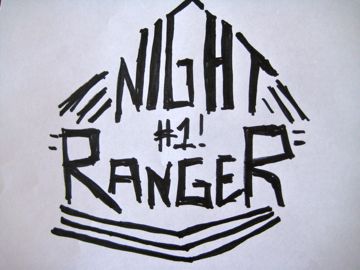Illustration by author, drawn without even having to look.
I have made a playlist of Night Ranger’s first five albums and am rocking out in a way that will surely get me evicted from my apartment. The volume is high, and lyrics thought long-since-forgotten are howling from my mouth. There is quite a bit of air-guitar-soloing, especially during parts with eight finger-tapping, which might make any neighbor peaking thought my window think that I’m trying to conjure a spell, or possibly iron a shirt.
